第31章
For her, whose insight enables her to see, through the distance, those large beatitudes towards which the struggles and suffering of the women of today may tend; who sees beyond the present, though in a future which she knows she will never enter, an enlarged and strengthened womanhood bearing forward with it a strengthened and expanded race, it is not so hard to renounce and labour with unshaken purpose: but for those who have not that view, and struggle on, animated at most by a vague consciousness that somewhere ahead lies a large end, towards which their efforts tend; who labour year after year at some poor little gargoyle of a Franchise Bill, or the shaping of some rough little foundation-stone of reform in education, or dress a stone (which perhaps never quite fits the spot it was intended for, and has to be thrown aside!); or who carve away all their lives to produce a corbel of some reform in sexual relations, in the end to find it break under the chisel; who, out of many failures attain, perhaps, to no success, or but to one, and that so small and set so much in the shade that no eye will ever see it; for such as these, it is perhaps not so easy to labour without growing weary.Nevertheless, it is through the labours of these myriad toilers, each working in her own minute sphere, with her own small outlook, and out of endless failures and miscarriages, that at last the enwidened and beautified relations of woman to life must rise, if they are ever to come.
When a starfish lies on the ground at the bottom of a sloping rock it has to climb, it seems to the onlooker as though there were nothing which could stir the inert mass and no means for taking it to the top.Yet watch it.
Beneath its lower side, hidden from sight, are a million fine tentacles;impulses of will from the central nerve radiate throughout the whole body, and each tiny fibre, fine as a hair, slowly extends itself, and seizes on the minute particle of rough rock nearest to it; now a small tentacle slips its hold, and then it holds firmly, and then slowly and slowly the whole inert mass rises to the top.
It is often said of those who lead in this attempt at the readaption of woman's relation to life, that they are "New Women"; and they are at times spoken of as though they were a something portentous and unheard-of in the order of human life.
But, the truth is, we are not new.We who lead in this movement today are of that old, old Teutonic womanhood, which twenty centuries ago ploughed its march through European forests and morasses beside its male companion;which marched with the Cimbri to Italy, and with the Franks across the Rhine, with the Varagians into Russia, and the Alamani into Switzerland;which peopled Scandinavia, and penetrated to Britain; whose priestesses had their shrines in German forests, and gave out the oracle for peace or war.
We have in us the blood of a womanhood that was never bought and never sold; that wore no veil, and had no foot bound; whose realised ideal of marriage was sexual companionship and an equality in duty and labour; who stood side by side with the males they loved in peace or war, and whose children, when they had borne them, sucked manhood from their breasts, and even through their foetal existence heard a brave heart beat above them.
We are women of a breed whose racial ideal was no Helen of Troy, passed passively from male hand to male hand, as men pass gold or lead; but that Brynhild whom Segurd found, clad in helm and byrne, the warrior maid, who gave him counsel "the deepest that ever yet was given to living man," and "wrought on him to the performing of great deeds;" who, when he died, raised high the funeral pyre and lay down on it beside him, crying, "Nor shall the door swing to at the heel of him as I go in beside him!" We are of a race of women that of old knew no fear, and feared no death, and lived great lives and hoped great hopes; and if today some of us have fallen on evil and degenerate times, there moves in us yet the throb of the old blood.
If it be today on no physical battlefield that we stand beside our men, and on no march through no external forest or morass that we have to lead; it is yet the old spirit which, undimmed by two thousand years, stirs within us in deeper and subtler ways; it is yet the cry of the old, free Northern woman which makes the world today.Though the battlefield be now for us all, in the laboratory or the workshop, in the forum or the study, in the assembly and in the mart and the political arena, with the pen and not the sword, of the head and not the arm, we still stand side by side with the men we love, "to dare with them in war and to suffer with them in peace,"as the Roman wrote of our old Northern womanhood.